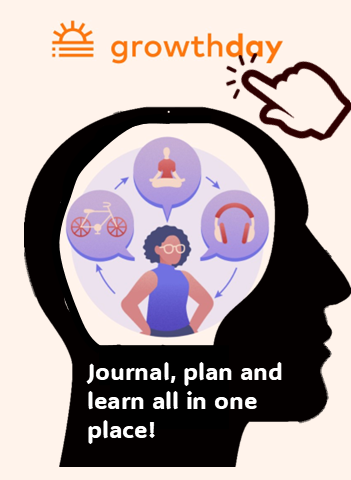What Type of Mindset Do You Possess?
04 February 2025

“If you look at what you have in your life, you’ll always have more. If you look at what you don’t have in life, you’ll never have enough.”- Oprah Winfrey
The variety of mindsets that people embody hinges on the extent to which one generalises the concept of mindset. Finding your type of mindset is key to understanding the mindset that factors into how you operate in every single area of your life. The two main types of mindsets are Fixed mindsets and Growth mindsets. Each has benefits and downsides. Having an awareness to this is the first crucial step toward empowerment and change. With determination and consistent effort, you can gradually shift your perspective, enabling you to embrace challenges, learn from mistakes, and view effort as a path to mastery rather than a futile endeavour.
If you have a fixed mindset, you tend to believe your skills or qualities are set and cannot be changed. You have a set belief about many things including your intelligence level, and your personality or character. These people tend to limit themselves and focus on proving themselves to others.

If you can identify the areas where a fixed mindset might be holding you back, then actively seeking opportunities for growth becomes essential. This might mean actively seeking feedback from peers or mentors, engaging in continuous learning through reading or coursework, and intentionally placing yourself in situations that challenge you. As you do so, it’s important to celebrate small victories; every step forward reinforces the concept that change is not only possible but also profoundly rewarding. Recognizing your progress can bolster your motivation to keep pushing the boundaries of what you believe you’re capable of.
Some of the sub-mindsets of a fixed mindset include:
Fear mindset.
Lazy mindset.
Envy mindset.
Greed mindset.
Short-term mindset.
Angry mindset.
Follower mindset.
Characteristics include:
Blaming others for things that are wrong.
Lazy habits.
Relying on addictions.
Insatiable and always want more.
Self-absorbed, with little thought of others.
Limited initiative to achieve.
Obsessed with what others are do or say.
Waste time.
-
Come across in a negative way.

If you have a growth mindset you are apt to believe you have a basic set of qualities that can be cultivated and developed through your efforts, strategies and help from others.
Some of the sub-mindsets of a growth mindset include:
Social mindset.
Business mindset.
Dreamer mindset.
Gratitude mindset.
Confident mindset.
Creative mindset.
Characteristics include:
Willing to help others.
Solve problems.
Think big and know what you want.
Feel gratitude for what you have.
Eager to learn.
Dedication to achieve and grow.
Able to change and develop skills.
Embrace challenges.
Learn from failures.
What type of mindset is the basis of your thoughts and actions? Do you believe that you are just this way and cannot change? Do you believe you can change, and things can be different for you? The good news is you can change your mindset to one of growth and abundance. Ultimately, developing a growth mindset is a lifelong journey that continually evolves and strengthens. With each challenge you overcome, your belief in your capacity to grow deepens, encouraging a positive cycle of growth and development. This ongoing process not only enhances personal satisfaction and achievement but also fosters meaningful connections with others who are on similar journeys. By committing to this path, you give yourself the opportunity to live a life that’s defined by limitless potential and continuous improvement, creating a more resilient and fulfilled version of yourself.
